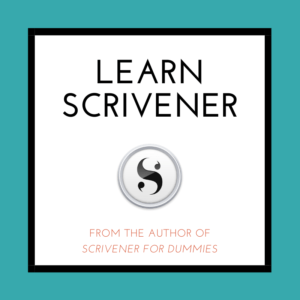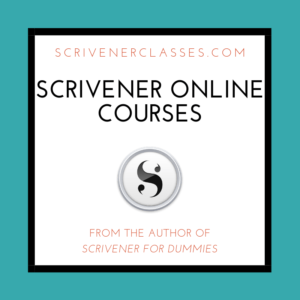Writing isn’t just for the gifted. With dedication, anyone can master the craft. Whether you’re looking to pen the next great novel, create a compelling blog post, or improve your communication skills, writing is a skill that can be cultivated. This post will explore how consistent practice can transform your writing abilities and build your confidence.

The Myth of the “Natural” Writer
Many people believe that writing is a talent that you’re either born with or without. This myth can be discouraging, leading potential writers to abandon their dreams before they even begin. However, writing, like any other skill, can be learned and honed over time. While some individuals may have a natural affinity for words, the majority of accomplished writers have achieved their success through relentless practice and perseverance.
The Importance of Daily Practice
One of the most effective ways to improve your writing is to incorporate it into your daily routine. Writing every day, even if it’s just a few lines, can significantly enhance your skills over time. This practice not only helps you develop your voice and style but also builds discipline and confidence.
Benefits of Daily Writing Practice
Regular writing is a great way to improve writing fluency as it helps you to think more clearly and express your thoughts more fluidly. Additionally, writing daily exposes you to new words and phrases, enriching your vocabulary. Consistent practice stimulates your imagination, leading to more creative ideas and expressions. As you see your writing improve, your confidence grows, making you more willing to take on challenging writing tasks.

Setting Realistic Goals
To make daily writing a habit, it’s essential to set realistic goals. Start small—perhaps committing to writing for five to ten minutes each day. Gradually increase the time as you become more comfortable. The key is consistency, not the length of time spent writing.
Overcoming Writer’s Block
Writer’s block is a common obstacle that can hinder progress. To overcome it, try the following strategies: Here are some helpful writing techniques to enhance your creativity and overcome mental blocks:
1. Free Writing: Set aside a specific amount of time to write continuously without concerning yourself with grammar or structure. This method can assist you in breaking through mental barriers and accessing creative ideas.
2. Prompts and Exercises: Utilize writing prompts and exercises to ignite your creativity and provide a jumping-off point for your writing. These prompts can range from specific words or phrases to more elaborate scenarios or questions.
3. Change of Scenery: Consider changing your physical environment as a means of stimulating new ideas and gaining fresh perspectives. Whether it’s moving to a different room, going outdoors, or visiting a new location, a change in scenery can help inspire creativity and enhance your writing process.
The Role of Feedback
Receiving feedback is crucial for growth. Share your work with others and be open to constructive criticism. This can help you identify areas for improvement and refine your writing style. Consider joining a writing group or finding a writing partner for regular feedback and support.
Developing Your Writing Skills
Mastering the Basics
Before you can excel in writing, it’s essential to have a strong grasp of the basics. This includes understanding grammar, punctuation, and sentence structure. There are numerous resources available, including books, online courses, and writing workshops, that can help you build a solid foundation.
Recommended Resources
– Books: “The Elements of Style” by Strunk and White, “On Writing Well” by William Zinsser.
– Online Courses: Coursera, Udemy, and edX offer a variety of writing courses for all skill levels.
– Writing Workshops: Many communities offer local writing workshops and seminars.

Finding Your Voice
Every writer has a unique voice, which is shaped by their experiences, perspectives, and personality. Finding your voice involves experimenting with different styles and tones until you discover what feels most natural and authentic.
Tips for Finding Your Voice
When it comes to developing your writing skills, it’s crucial to expose yourself to a wide range of literary genres and styles. By immersing yourself in different types of writing, you can gain a deeper understanding of what resonates with you personally.
Additionally, it’s important to always remain true to yourself and your unique voice as a writer. When crafting your work, write about topics that truly matter to you, and strive to convey your thoughts and emotions authentically.
Don’t be afraid to experiment with various writing styles and formats. Trying out different techniques can help you discover what suits you best as a writer. Whether it’s poetry, fiction, non-fiction, or any other form of writing, exploring different avenues can aid in honing your skills and finding your niche.

Building a Writing Routine
Establishing a writing routine can help you stay disciplined and make writing a regular part of your life. Choose a time of day when you feel most creative and set aside dedicated time for writing. Creating a comfortable and inspiring writing space can also enhance your productivity.
Creating a Writing Schedule
1. Recognize Your Peak Productivity Hours: Take note of the times when you feel most focused and energized, and plan your writing sessions accordingly. For example, if you’re a morning person, schedule your writing time in the early hours when your mind is fresh and alert.
2. Establish Specific and Achievable Objectives: Clearly outline your writing goals for each session. This could include setting a specific word count target, completing a certain section of your work, or generating a set number of new ideas for your project. Having these clear goals will help keep you motivated and on track during your writing sessions.
3. Commit to Regular Writing Sessions: Make a commitment to stick to your writing schedule as consistently as possible. By establishing a routine, you’ll build a strong writing practice and make significant progress on your projects. Whether it’s daily, every other day, or specific days of the week, try to carve out dedicated time for your writing and treat it as a priority.
The Writing Process
Pre-Writing
The pre-writing phase involves brainstorming, researching, and outlining your ideas. This stage is crucial for organizing your thoughts and creating a roadmap for your writing.
Brainstorming Techniques
1. Mind Mapping: Use visual diagrams to create a graphical representation of your ideas and their interconnectedness. Start with a central concept and then branch out, linking related ideas and concepts in a non-linear manner.
2. Listing: Write down all your ideas in a list format, allowing you to quickly capture and organize your thoughts in a sequential or categorized manner.
3. Free Writing: Set aside a specific period of time to write continuously without worrying about grammar or structure. This technique helps to unleash creativity by allowing you to express your thoughts and generate ideas without constraints.
Research Tips
When conducting research, it’s crucial to base your information on reliable and reputable sources such as academic publications, peer-reviewed journals, and expert opinions.
Take comprehensive and well-organized notes, including key findings, supporting evidence, and source citations, to facilitate easy reference and cross-referencing.
Additionally, maintaining focus on your research topic involves:
- Setting clear objectives.
- Outlining specific research questions.
- Regularly assessing the relevance of the information you gather to ensure it aligns with your intended scope and purpose.
Drafting
The drafting phase is where you put your ideas into words. Focus on getting your thoughts down on paper without worrying too much about perfection. Remember, the first draft is just the beginning.

Tips for Effective Drafting
Following suggestions for effective writing:
1. Practice Freewriting: Give yourself the freedom to write without worrying about editing. Let your ideas flow without hindrance.
2. Maintain Focus: Instead of trying to tackle everything at once, concentrate on one section or idea at a time. This approach can help prevent feeling overwhelmed and improve the quality of your writing.
3. Schedule Regular Breaks: It’s essential to take breaks to rejuvenate your mind. Stepping away from your writing allows you to recharge, which can enhance your creativity and productivity.
Revising
Revising involves reviewing and improving your draft. This stage focuses on refining your ideas, improving clarity, and enhancing the overall flow of your writing.
Revising Strategies
Tips for revising your work:
1. Read Aloud: Reading your work out loud is a great way to identify any awkward phrases or inconsistencies that you might have missed while silently reading.
2. Seek Feedback: It's important to share your draft with others and be open to their suggestions. Getting feedback from others can provide valuable insights and different perspectives.
3. Take Your Time: Don't rush the revision process. Give yourself enough time to reflect on your work and make improvements. Taking breaks and coming back to your work with fresh eyes can also be beneficial.
Editing and Proofreading
Editing and proofreading are the final stages of the writing process. This involves checking for grammar, punctuation, and spelling errors, as well as ensuring consistency and accuracy.
Tips for Effective Editing
When editing your work, it's helpful to utilize specialized editing tools such as Grammarly and Hemingway. These tools can efficiently identify and correct grammatical errors, sentence structure, and overall readability. Additionally, it's beneficial to take breaks before editing to gain a fresh perspective. Check out Grammarly!
Stepping away from your work for a while can help you return with a clearer mind to evaluate your writing more effectively. Another helpful editing technique is to read your text backward. This method can help you focus on individual words and catch spelling errors that you might have overlooked when reading typically.
Maintaining Motivation
Setting Long-Term Goals
Having long-term writing goals can keep you motivated and focused. These goals could include completing a novel, starting a blog, or submitting your work for publication.
Creating a Writing Plan
1. Define Your Goals: Start by clearly outlining what you want to achieve with your writing. Decide whether you want to inform, persuade, entertain, or accomplish another objective with your writing. Setting specific and achievable goals will help guide your writing process and keep you focused.
2. Break Down Goals: Take your long-term writing goals and break them down into smaller, more manageable tasks. For example, if your long-term goal is to write a book, break it down into tasks such as outlining chapters, conducting research, and setting writing milestones. This will make your writing journey less overwhelming and allow you to make progress step by step.
3. Track Progress: Keep a record of your achievements along the way. Whether it's reaching a word count milestone, receiving positive feedback, or completing a specific task, tracking your progress will help you stay motivated and provide a sense of accomplishment. Celebrate your progress, no matter how small, to maintain motivation and momentum in your writing journey.

Dealing with Self-Doubt
Self-doubt is a common challenge for writers. Recognizing and addressing these feelings is vital to continuing to make progress.
Overcoming Self-Doubt
Remember to incorporate positive affirmations into your daily routine to uplift and boost your confidence. Take a moment to acknowledge and celebrate your achievements, no matter how small they may seem.
Surround yourself with supportive individuals who genuinely care about your well-being and are there to encourage and inspire you along your journey. These actions can have a powerful impact on your overall well-being and success.
Staying Inspired
Finding inspiration can be a powerful motivator. Look for sources of inspiration in your everyday life, such as nature, art, and personal experiences.
Finding Inspiration
Make sure to explore a diverse selection of literature, encompassing fiction, non-fiction, poetry, and essays. Diversifying your reading can expose you to new writing styles, perspectives, and ideas that can inspire your own work.
Additionally, seek inspiration from various artistic mediums like music, film, photography, and painting. Different art forms can trigger unique emotions and offer fresh viewpoints that can contribute to your creativity.
Finally, draw on your personal experiences and emotions as a rich source of inspiration for your writing. Reflect on significant moments in your life, as well as the range of emotions you've experienced, to add depth and authenticity to your work.
Writing is a journey, not a destination; it is a skill that can be developed and perfected over time with dedication and practice. By incorporating daily writing into your routine, setting realistic goals, and continuously seeking feedback and improvement, you can transform your writing abilities and build confidence. Remember, writing isn't just for the gifted—with perseverance and passion, anyone can master the craft. So, start today and watch your writing skills flourish.
As a wordsmith seeking to enhance your writing prowess, you'll find many remarkable writing tools and apps at your disposal. Let's explore some of the best options:
- Scrivener: A beloved companion for authors, Scrivener offers a treasure trove of features. It helps you track plot threads, store character notes, structure your work, and—most importantly—get serious writing done. While it's not free, the investment is worth it for serious writers.
- Ulysses: If distraction-free writing is your goal, Ulysses is your muse. Its minimalist interface allows you to focus solely on your words. Plus, it syncs seamlessly across devices, ensuring your creativity flows wherever you are.
- iA Writer: Ideal for online writing (think Medium or WordPress), iA Writer combines simplicity with elegance. Its clean design encourages a flow state, making it a favorite among bloggers and content creators.
- Plottr: For those who thrive on outlining, Plottr is a gem. It helps you map out your novel, organize scenes, and keep your plot threads in check. Whether you're a pantser or a plotter, Plottr has your back.
- Reedsy Book Editor: If you're working on a book, Reedsy's online editor is a fantastic choice. It's free, collaborative, and offers a straightforward interface for drafting and editing your masterpiece.
- yWriter: Scene-based writers rejoice! yWriter lets you organize your novel into scenes, track characters, and maintain a bird's-eye view of your work. It's a powerful tool for structuring your narrative.
Scrivener can be an invaluable asset in your writing toolbox. It's a powerful writing software designed specifically for authors, researchers, and anyone involved in long-form writing projects. Here's a detailed explanation of how Scrivener can benefit you:
What is Scrivener?
Scrivener is a writing application created by Literature and Latte that combines a word processor with project management tools. It's designed to help writers organize their work and manage their projects more efficiently.
Key Features of Scrivener
1. Project Management
Scrivener allows you to organize your writing project in a hierarchical manner. You can create folders for chapters, subfolders for scenes, and individual documents for each section. This makes it easy to keep track of where everything is and move sections around as needed.
Benefits:
- Enhanced Organization: Keeps all your research, notes, and writing in one place.
- Easy Navigation: Quickly switch between different parts of your project.
2. Research Integration
You can import and store research materials within Scrivener. This includes PDFs, images, web pages, and notes. You can view your research alongside your writing, making it easy to reference materials without leaving the application.
Benefits:
- Centralized Information: All your research is accessible from within your writing project.
- Time-Saving: No need to switch between multiple applications or documents.
3. Writing Tools
Scrivener offers a range of tools to enhance your writing process. This includes a distraction-free writing mode, word count targets, and a robust outliner.
Benefits:
- Focus: Distraction-free mode helps you concentrate on writing.
- Goal Setting: Word count targets help you stay on track with your writing goals.
- Planning: The outliner helps you map out your story or structure your research.
4. Corkboard and Outliner
The corkboard allows you to organize your ideas using virtual index cards. Each card can represent a scene, a character note, or any other piece of information. The outliner provides a detailed view of your project's structure.
Benefits:
- Visual Organization: The corkboard gives a visual representation of your project.
- Detailed Planning: The outliner helps you see the big picture and the finer details of your work.
5. Compilation and Export
Scrivener's compile feature allows you to format your manuscript for various outputs, such as print, e-books, or PDFs. You can customize the formatting to meet specific guidelines or personal preferences.
Benefits:
Our platform offers exceptional versatility, allowing you to effortlessly create a wide range of documents tailored to various purposes. Whether you need to draft reports, design presentations, or compile research papers, our intuitive tools make the process simple and efficient.
Additionally, our platform ensures professional-quality results, enabling you to produce well-formatted manuscripts that are ready for submission to scholarly journals or other publications. You can trust that your documents will meet the highest standards, saving you time and effort in the editing and formatting process.
6. Snapshot Feature
Scrivener allows you to take snapshots of your documents. This means you can save a version of your document at any point and revert back to it if needed.
Benefits:
Feel free to experiment with various versions of your document without the fear of losing your work. This feature provides security and ensures that you can revise and edit your work without any concerns about data loss.
7. Customization
Scrivener is highly customizable. You can adjust the interface, create templates, and set up your workspace to suit your needs.
Benefits:
"Customize the software to match your specific workflow for a more personalized experience. Tailoring tools and settings can greatly enhance your writing efficiency and productivity."
How to Use Scrivener Effectively
Getting Started
1. Create a New Project: Choose a template that fits your project type (e.g., novel, screenplay, research paper).
2. Set Up Your Binder: Organize your project with folders and subfolders.
3. Import Research: Add all relevant research materials to the Research folder.
Writing
1. Use the Corkboard: Use index cards to plan your scenes or chapters.
2. Draft in Full Screen: Use the distraction-free mode to focus on writing.
3. Track Progress: Set word count targets and monitor your progress.
Revising
1. Take Snapshots: Before making major changes, take a snapshot of your document.
2. Use Comments and Annotations: Add notes and comments for areas that need revision.
3. Compile Drafts: Use the compile feature to format drafts for feedback or submission.
Finalizing
1. Polish Your Manuscript: Make final edits and ensure consistency throughout your project.
2. Compile for Output: Format your manuscript for print, e-book, or PDF.
3. Export and Share: Export your project in the desired format and share it with editors, agents, or readers.
Conclusion,
"Scrivener isn't just your average word processor - it's your ultimate writing companion. Packed with features to support every step of your writing journey, Scrivener keeps you on track, helping you stay organized, focused, and productive from the initial planning all the way through to the final edits. By making Scrivener a part of your writing toolkit, you'll streamline your workflow and elevate the quality of your writing."
Remember, the best writing app is the one that aligns with your unique needs and writing style. Whether you're crafting screenplays, novels, or blog posts, these tools will be your trusty companions on your literary journey.
Happy writing! 📝✨
Kevin



